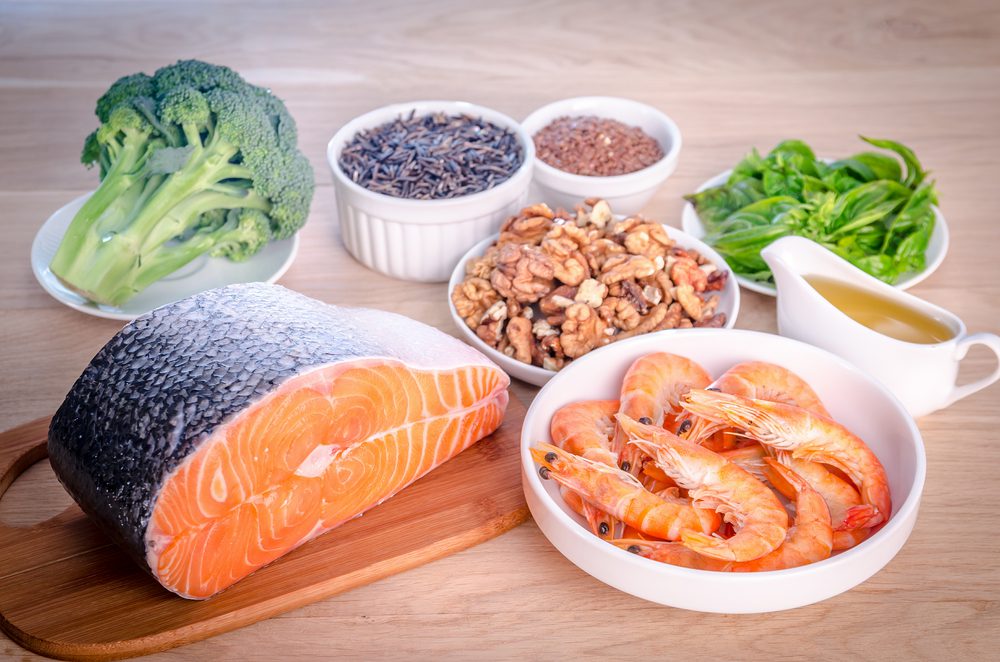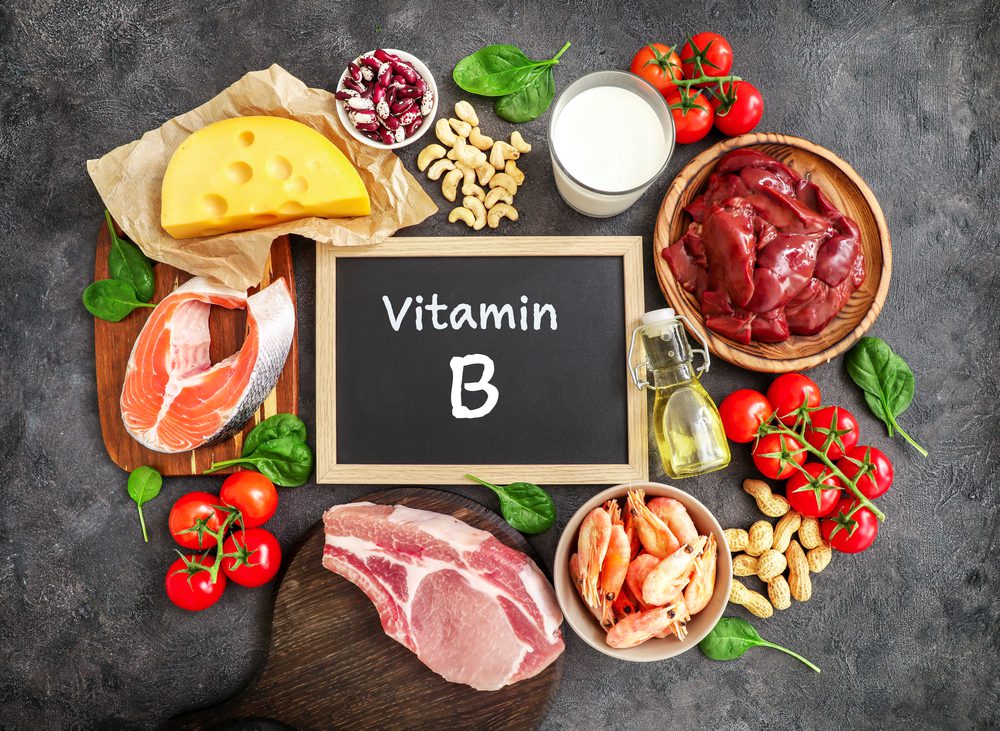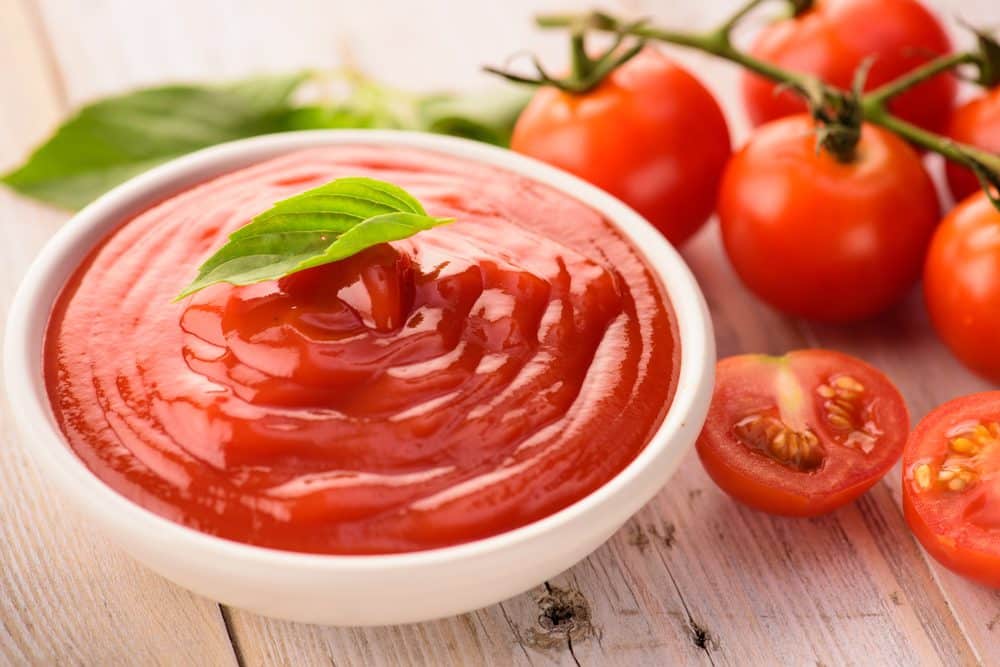…Did you know that there are certain foods that can induce anxiety?
Several studies have discovered that there is a connection between the food we eat and our brains. Besides always being told to include healthy foods in our diet if we want to achieve certain fitness goals, we can say that food can influence our mood as well.
For instance, there are many people who experience a lot of anxiety when they consume too many processed foods, such as chips, candies, pastries, fried food, or high-fat dairy products. The more you eat those, the more anxious you’ll get.
The problem is that you don’t notice that anxiety can be impacted by your diet, so you keep on eating plenty of junk food in order to calm yourself.
…Have you ever felt anxious and had no idea why?
It might be time to take a look at your diet and see if some of the foods you eat are actually a trigger for anxiety. In today’s article, we’ll talk about the foods that will balance your hormones and those that make your body go crazy. Here they are:

1. Omega-3 fatty acids
We tend to go to doctors and ask them for advice and medications when we feel different types of things, such as anxiety. But the easiest solution could actually be in plain sight: the food we consume on a daily basis.
Both nutritionists and doctors are starting to learn and understand more about the role that foods have in our lives. There are certain nutrients that are key ingredients for a healthy and happy brain, as many experts suggest.
We’ve heard many times that we have to pay attention to all the nutrients food contains, rather than other types of information, such as calories.
Of course, you still need to be in a caloric deficit if you want to lose weight, but if you want to keep your skin and hair glowing, your brain healthy, and your anxiety at bay, you should definitely get those nutrients in.
In conformity with Melissa Reagan Brunetti, clinical nutritionist and health coach, dietary patterns and nutritional deficiencies can affect brain chemistry and can mess with the formulation of neurotransmitters. These are chemicals in your brain and are responsible for your mood and appetite.
Several studies have discovered that omega-3 fatty acids are great for reducing anxiety and helping your brain function properly.
You can find this amazing nutrient in foods such as wild salmon, mackerel, tuna, herring, sardines, chia seeds, flaxseed, walnuts, soybean oil, flaxseed oil, and canola oil.
2. Water
The easiest thing you can do to make sure you keep anxiety at bay is to drink water throughout the day. Even though there is no clear connection between these two, many experts believe that being dehydrated can interfere with your mood.
They say that you feel the thirst sensation when you’re actually 1-2% already dehydrated. When you feel that, it means that your body is already battling with mood swings and the way it performs.
The best way to avoid this is to keep a water bottle with clean H2O next to you and sip throughout the day. If you have a hard time drinking it, you can add fruits and vegetables to make it taste better.
Lime, mint leaves, berries, oranges, cucumbers, lemon, ginger, and even cherries are great if you’re craving something sweet, delicious, and healthy, that won’t give you anxiety like sugary drinks usually do.
…Do you have a favorite infused water recipe? Tell us in the comments down below!
3. Antioxidants
A diet high in antioxidants is very beneficial for reducing anxiety and also the risk of several diseases, such as cancer and heart disease. Antioxidants scavenge free radicals that are inside your body cells and prevent or reduce the impact caused by oxidation.
Besides that, antioxidants are great for fighting against oxidative stress and protecting your brain. This type of stress (free radicals) can lead to inflammation in your body, which can further damage neurotransmitter production.
In order to get all these benefits, you should add certain foods, such as spinach, kale, red peppers, green tea, broccoli, carrots, sweet potatoes, avocado, strawberries, Brussels sprouts, squash, almond, and sunflower seeds into your diet.
In addition to that, several nutritionists suggest that you should also consume foods that are high in selenium, such as turkey, halibut, grass-fed beef, Brazil nuts, eggs, and chicken.
Zinc is another type of antioxidant that is great for keeping your mood in check. A great source of this mineral is cashew nuts. Try incorporating these foods into your diet and you’ll notice yourself saying goodbye to anxiety.
4. Teas
Even though caffeine is healthy for your body, you should consume it in moderation (check this article out for more details Healthy People Shared These 8 Delicious Coffee Habits!).
And if you want a boost of energy and awareness, but it’s too late in the day to drink another cup of joy, you can drink a delicious tea instead, such as ginseng and green tea.
On the other hand, chamomile, skullcap, and kava are great if you want to feel calm and have a good night’s sleep. However, keep in mind that kava tea can interact with antidepressants and anti-anxiety meds, so have a chat with your doctor before you consume it.
Besides that, this tea is so relaxing that if you drink too much of it, it might mess with your ability to drive, as some studies say.
5. Probiotics
Another way to keep your anxiety at bay is to eat foods that contain a lot of probiotics. These are microbiomes that naturally live in your body.
Scientists say that you can find both good and bad bacteria in your body, so every time you get an infection, it means that there are more bad bacteria compared to the good ones, which knock your immune system out of balance.
Good bacteria are responsible for getting rid of bad bacteria, helping your body return to its normal state. Eating foods that contain probiotics is a great way to add more good bacteria to your body, while also working on reducing anxiety effects.
Probiotics are a great help in producing neurotransmitters, such as dopamine, GABA (gamma-aminobutyric acid), and serotonin, which are all known for playing a major role in moods.
Several studies have discovered that probiotics can prevent and even treat anxiety. Make sure to add certain foods into your diet, such as kefir, yogurt, and sauerkraut if you want to keep your anxiety away from you.
6. Tryptophan
Many people think of tryptophan as a nutrient found in turkey, which makes them sleepy after eating on Thanksgiving Day. In reality, tryptophan is actually an amino acid that is essential for your body in order to regulate sleep and mood swings.
You can find this nutrient in several types of food that are high in protein, such as meats, nuts, eggs, beans, and seeds. Protein and tryptophan are great for the production of the neurotransmitter dopamine, which can help stabilize your moods.
In addition to that, a small study has discovered that people who consumed a food bar rich in tryptophan said that they experiences fewer anxiety symptoms, compared to those who ate a bar that didn’t contain tryptophan.
However, researchers need to perform more studies in order to find a clear connection between this type of nutrient and anxiety.
7. Magnesium
If you want to feel relaxed and also focused so that you can complete all the tasks you have in a day, magnesium is a great mineral for you.
Many studies have discovered that this healthy chemical can work as a blood-brain barrier, which doesn’t allow stress hormones to enter your brain.
You can get your daily dose of magnesium by eating greens, such as Swiss chard and spinach, avocado, legumes, nuts, and seeds. You can also talk to your doctor about getting some magnesium supplements that you can take every day.

8. Foods rich in Vitamin B
According to Harvard Medical School, vitamin B is a great ally when it comes to anxiety, energy levels, cell metabolism, and brain functioning.
A study from Australia discovered that workers who were very stressed and were given a high dose of vitamin B felt less anxious after 3 months.
Another study that had impressive results is one from the University of Miami, which discovered that adults who were diagnosed with depression and took a vitamin B complex had fewer depressive and anxiety episodes after only two months.
You can get your daily dose of vitamin B by taking supplements, or by eating certain foods, such as almonds, beef, avocado, leafy greens, legumes, eggs, and seafood.
Looking for some good supplements that are affordable and recommended by doctors? Check out Vitamin B12 Methylcobalamin from Amazon. For 100 capsules you will pay only $39.95! But you better hurry up, the offer may not last long!
Avoid These 6 Foods If You Don’t Want To Trigger Your Anxiety
1. Processed foods
Every single doctor and nutritionist out there will tell you to eliminate the majority of processed and high-sugar foods from your diet if you want to have a healthier body and a clearer mind.
Eating too many refined carbs and sugars will cause a spike in your blood sugar, which won’t last for too long. This means that you’ll get a burst of energy for a short period of time, but soon enough you’ll feel even more tired than you previously were.
A study from Columbia University discovered that the more sugary foods and refined carbs women ate, the higher their risk for anxiety and depression was.
Even though it might sound extreme, refined carbs and sugar can be seen as drugs. The more you eat them, the more you want to consume them. The same rule applies when we talk about fried foods and processed meats as well.
They might have a good taste, but these foods are responsible for creating inflammation in your body and they can also be linked to several problems, such as heart disease and mental health issues.
If you still want to eat these types of foods, you can consume them in moderation, only once a week, or you can look for healthier versions online and cook them yourself.
2. Caffeine
If you’re one of those people who can barely keep their eyes open until they’ve had their cup of joe in the morning, this might be okay for you. But if you rely on caffeine to get you through the day, you need to know that too much coffee can actually make your anxiety worse.
That is because caffeine acts as a stimulant for the nervous system, which will increase your blood pressure, heart rate, and body temperature. Several studies have discovered that drinking too much coffee in a day can make you feel jittery, shaky, sweaty, and nervous.
If you have severe anxiety and you drink too much caffeine in a day, whether it’s coffee or energy drinks, you have a higher risk of having a panic attack.
There are many people who said that they felt a strong pain in the left part of their chest after drinking two cups of coffee and an energy drink. The pain was so acute, that they couldn’t breathe properly or move their bodies.
In addition to that, too much caffeine can reduce blood flow to the brain by 27% and it can also mess with your sleep schedule, which is important for your brain, physical well-being, and mental health.
Besides limiting your caffeine daily intake, make sure you also don’t overindulge in dark chocolate (stick to maximum 2 squares a day).
If you love coffee as much as we do, but you don’t want to feel jittery and sick throughout the day, you can switch your second cup of joy to Decaff. This way, you’ll have the taste that you love, without inducing anxiety and or triggering inflammation in your body.
3. Alcohol
There is nothing wrong with drinking a glass or two of booze on special occasions. Just make sure you don’t overdo it!
Alcohol might make you feel a little frisky and funny at first. But after too much of it, you are more likely to get anxious and even experience symptoms of depression.
And that is not all! Several studies have discovered that people who are diagnosed with a social anxiety disorder (SAD) are more likely to develop alcohol dependence.
In conformity with the Anxiety and Depression Association of America, 20% of patients with SAD also suffer from alcohol dependence or abuse.
Many people believe that drinking a glass or two will help them calm their nerves. But in reality, booze is actually dehydrating and causes spikes and dips in blood sugar.
As a result, your brain doesn’t function the way it’s supposed to, leaving you to feel anxious and sad. Furthermore, in order to cope with all of these, you might be tempted to drink more, but it’s not a good idea, since it’s a vicious cycle.
According to the National Institute on Alcohol Abuse and Alcoholism, drinking too much can cause changes in the brain’s neurotransmitters, which might trigger all the symptoms we’ve previously talked about.
4. “Light” dressing
You might think that the word “light” means that it won’t do any harm to your body, right? Unfortunately, they contain ingredients that are just as bad as the “normal” products.
The light versions are usually made with artificial sweeteners that can make your body crave more and more of them. In addition to that, these dressings are also linked to depression and anxiety.
The best thing you can do in a case like this is to check the ingredients list, or even better, try to make your own dressing at home from scratch. It will be a lot healthier for you and it’ll have a great taste you’ll enjoy!
5. Frosting
…You might think it’s because of the sugar, right? Yes, but that’s not all.
It might be delicious, but the frosting is full of sugar and trans fats that are completely unnecessary for your body. They are also called “partially hydrogenated oils”, and you can find them in pizza dough, crackers, cookies, and fried foods.
You can always make your own frosting at home, using natural and nutritious ingredients. We are sure that your body will be a lot happier if you do so!

6. Ketchup
Ketchup might seem healthy, given the fact that it contains mostly tomatoes, but it also has impressive amounts of sugar. Four grams per tablespoon, if you want to know the exact number.
As we’ve previously said, if you buy the “light” version of it, it doesn’t mean that it’s necessarily healthier for you. Those fake sugars will only make you even more tempted to keep eating and they are also linked to depression and anxiety.
Instead of consuming ketchup, you can try and prepare tomato salsa at home. This way you’ll get to control the number of ingredients you put in and it will be even more delicious than the one you buy from the grocery store. If you’re in the mood for something spicy, add a bit of cayenne pepper.
…If you enjoyed reading this article and you are curious to know more about health and wellness, give this one a go: 7 Subtle Signs You Have a Weak Immune System.





